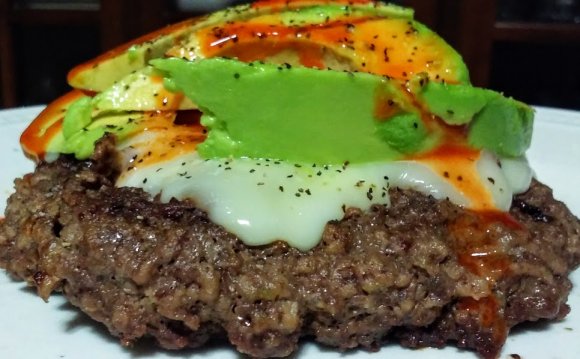
Diabetes and Exercise Columns and More Diabetes in Control.com
dLife-For Your Diabetes Life!
Does Low-Carb Eating Compromise Your Ability to Exercise?
In spite of your body's improved use of fat and ketones after you have been on a low-carb regimen for several weeks, it's an undeniable fact that fat will never be your body's first choice of fuel during moderate and intense workouts lasting more than a couple of minutes. If carbs are available, your body will use them over fats, especially as your workout gets more intense. It simply comes down to how the body works, and using carbs is more fuel efficient - that is, you get more energy out of carbs for a given quantity of oxygen (5.05 vs. 4.7 calories per gram for carbs and fats, respectively). Carbs are like using a higher-octane fuel, resulting in more miles to the gallon. If you want to exercise intensely and you eat a low-carb diet, you will simply not be able to perform at the highest level possible. However, if you're eating enough calories to cover your body's basal needs and your exercise use, you can easily get by with 40% or less of your calories coming from carbs. Eating more carbs than that will not necessarily benefit exercise (it is NOT a case of "some is good, so more is better"). I do believe that most people who are training overdo their carb intake, given the limited amount and intensity of training that they do. For example, you really don't need to eat a huge pasta dinner the night before you do a 5K (3.1 mile) run. It does take 24 to 48 hours to fully restore the muscle glycogen that you deplete during exercise, but that time frame assumes that you're eating adequate amounts of carbs. If you're on a low-carb dietary regimen, it will inevitably take longer than expected, and you may be trying to do your next workout with less muscle and liver glycogen available. Being glycogen depleted also does not necessarily improve your fat use because, as we say in the exercise physiology world, "fat burns in a carbohydrate flame." If your muscles are glycogen depleted, your fat use will be somewhat compromised, and you'll have to slow down your pace for that reason as well. Low-carb eating and exercise has not been well studied in diabetic individuals, but let me give you a recent published example of its effects in a non-diabetic population during a single session of exercise to exhaustion done at a high intensity. Keep in mind that this study is related to optimal performance at a higher level, not the mild or moderate activity done during an average exercise session like brisk walking for an hour. The study, published in Brazilian Journal of Medical and Biological Research in late 2009, examined the effects of lowering carbohydrate intake for 48 hours and its effect on the time to exhaustion during moderate and heavy exercise. Seven men participated in a randomized order in two diet and exercise regimens each lasting 3 days with a 1-week interval for washout. After doing a glycogen-depleting bout of exercise, the men ate a diet with either 10% or 65% of calories derived from carbohydrates for the two days before testing. The researchers found that subjects only had problems with early fatigue during the higher-intensity exercise done in a more glycogen-depleted state, but not during the lower-intensity exercise. They concluded that this finding may be related to an inability of fat oxidation to substitute for muscle glycogen oxidation at high exercise intensities. The glycogen-depleted subjects did have a greater fat use during exercise, but the exercise also felt harder to them (i.e., their perceived effort with low glycogen levels was higher). Admittedly, if all of your exercise training and competing is going to be done at a submaximal level (with your goal being just to finish and not to be competitive), then this study may not be that relevant to you. Do you really need to restrict carbs so severely if you're exercising regularly? Probably not. Even people with Type 2 diabetes will be able to handle carbs better when doing regular physical activity that depletes some muscle glycogen (the main storage depot for excess carbohydrate consumption), and they may feel less tired and more energetic when eating some carbs during and/or after exercise in particular to speed up muscle glycogen repletion. On rest days, a lower carb diet is certainly better for everyone (even people without diabetes). For individuals with Type 1 diabetes, it's also critical to keep your blood sugars in good control to optimize muscle and liver glycogen restoration; it won't be effectively restored if your sugars are running too high. Taking in some carbs post-exercise is probably the most important time - during that "window of opportunity" from 30 minutes to 2 hours afterwards when glycogen repletion rates are highest - which is also when your body will need the least amount of insulin to cover any carbs you eat. It doesn't necessarily have to be a lot; you can start out with maybe 15-30 grams, depending on how long and hard you worked out. |
INTERESTING VIDEO













